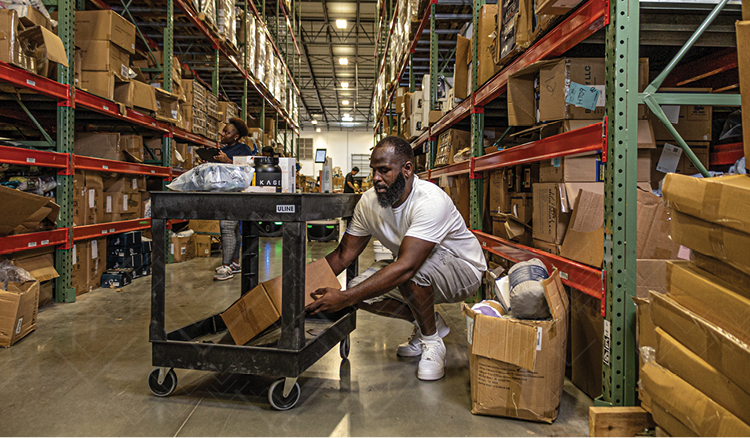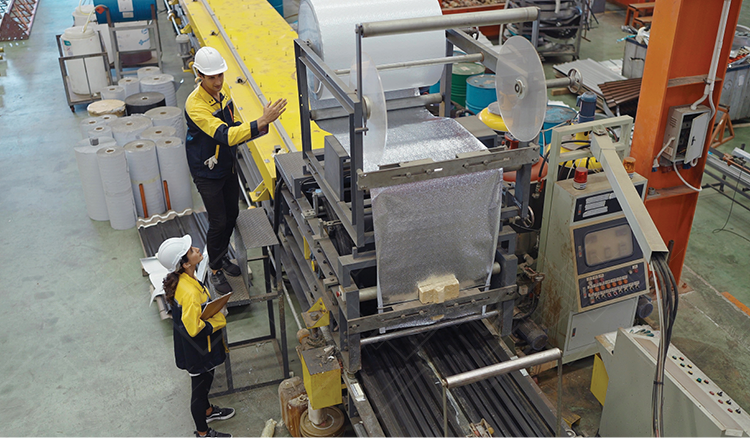Creativity over Capital: Growing Your Business Without Capital Investment
Expanding production capacity typically focuses on upfront investments in facilities, equipment, and recruitment; however, that’s not always wise in an uncertain economic environment. Even in a stable economy, months pass between incurring costs and realizing benefits. Many businesses are unwilling to take the risk to grow, or simply can’t afford that level of capital investment. Especially small to medium sized businesses, who make up the majority of the sector.
Lean professionals champion a different approach, Creativity Over Capital. By applying lean principles to labor and increasing utilization of existing assets, businesses can create the additional capacity they need to grow without the need for substantial capital expenditures.
Limitations of Automation
In recent years, many businesses have turned to automation to combat rising costs and labor shortages. Automation can be a practical choice for repeatable processes with reliable long-term demand, but automation is not a universal solution. There are several drawbacks to consider when evaluating automation projects, or any capital-intensive solution.
Automation projects typically require a significant initial investment, which can pose a barrier for many businesses. If the Return on Investment (ROI) for a potential project looks good, then the investment can be justified, but payback calculations include high levels of uncertainty around demand forecasting and cost estimates. When sales forecasts fail to come to fruition, or projects run long and over budget, return on investment is affected. Many projects that appeared profitable at the start lose their luster by the end.
Additionally, capital just may not be available. Smaller organizations may find it difficult to afford large-scale capital projects, while even larger organizations may need to prioritize and fund only a few select projects annually, missing out on opportunities for improvement and growth.
After a project is approved, there is still a significant lead time for implementation. Equipment procurement can take six to eight months or longer, and material supply issues can further extend the wait. Also, don’t overlook the additional time for equipment installation and commissioning. It could take up to a year after approval before the equipment is running at steady state and benefits are realized. After an extended lead time, circumstances may have changed, but pivoting after a large monetary or time investment is difficult, limiting the agility of the business and further delaying growth.
Another common pitfall is overlooking the increased maintenance costs, and potential downtime for repairs. While automation reduces production labor, it increases reliance on skilled maintenance resources. The complexity of automated systems can lead to reliability issues and require additional maintenance resources to avoid downtime, something that is rarely a concern with manual processes.
In a strange paradox, automation can also lead to diminished capacity by creating longer periods of planned downtime for changeovers. Automation will increase throughput for a process, but the equipment tends to be specialized and more complicated, which can increase the time and labor to changeover to a different product. Longer changeovers will drive up batch size and minimum order quantities, making the overall operation less agile.
Click here to read more about the pros and cons of automation in manufacturing
Veryable - A Game Changing Solution
Veryable offers a significant strategic advantage for businesses seeking flexibility and efficiency in their operations. By enabling businesses to scale capacity on a daily basis, Veryable allows manufacturers to quickly adapt to changing market conditions and seize new opportunities without the need for substantial upfront investments in equipment or infrastructure.
Additionally, Veryable's model reduces the complexities and expenses tied to hiring and training a large full-time workforce. Instead of committing resources to recruiting, screening, hiring, and training new hires, businesses can access skilled labor precisely when needed, improving both flexibility and resource allocation. This approach supports rapid growth, seasonal adjustments, or unexpected demand spikes, empowering businesses to operate more dynamically and competitively in a volatile economic environment.
With thousands of partners in over 42 major cities across the US, Veryable has already demonstrated that they are the right partner to enable sustainable growth for manufacturing, logistics and supply chain focused businesses.
To see the results, check out our case studies page.
Value Precedes Cost
What exactly is meant by Value Precedes Cost? It’s simple. A work opportunity is posted, qualified operators bid and are accepted to perform the work. This streamlined process takes hours, not weeks, and is so efficient producers can ship a product and accrue revenue for work performed by a Veryable operator before they’re even invoiced for the work. This flips tradition on its head to improve cash flow—an invaluable benefit for a smaller business looking to grow.
Capital investment in facilities, equipment and recruitment will increase your production capacity, but multiple factors prevent this from being a one-size-fits-all approach. By applying some creative thinking and leveraging Veryable for support, you’ll gain the additional capacity you need to grow your business without the added risk.
if you enjoyed this article, make sure check out the other ones in this series:
Creativity Over Capital: Lessons From DeepSeek and The Factory Floor
Creativity Over Capital: Addressing The Skilled Labor Gap
Creativity Over Capital: Changeover Reduction
Creativity Over Capital: Fleet Optimization for Beverage Distributors
Previous Posts
How Policy Constraints, Not Just Production Bottlenecks, Threaten Your Bottom Line
The Future of Manufacturing and Logistics
Create a free business profile today to explore our platform.






